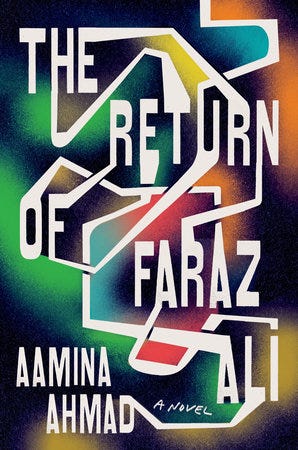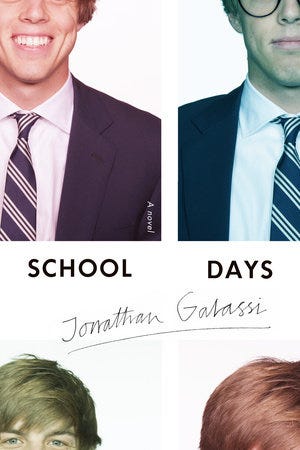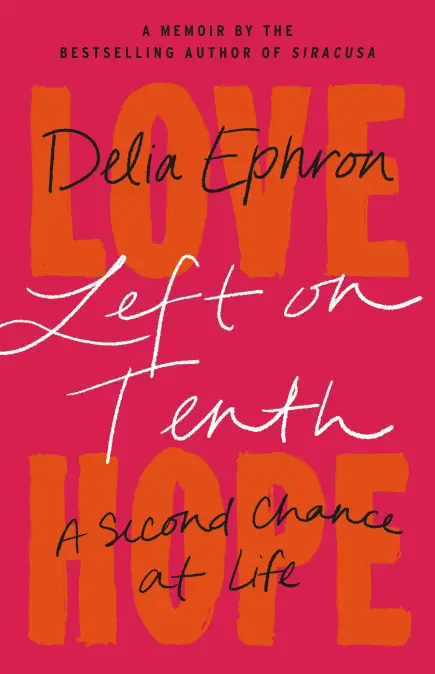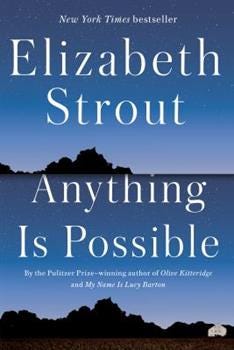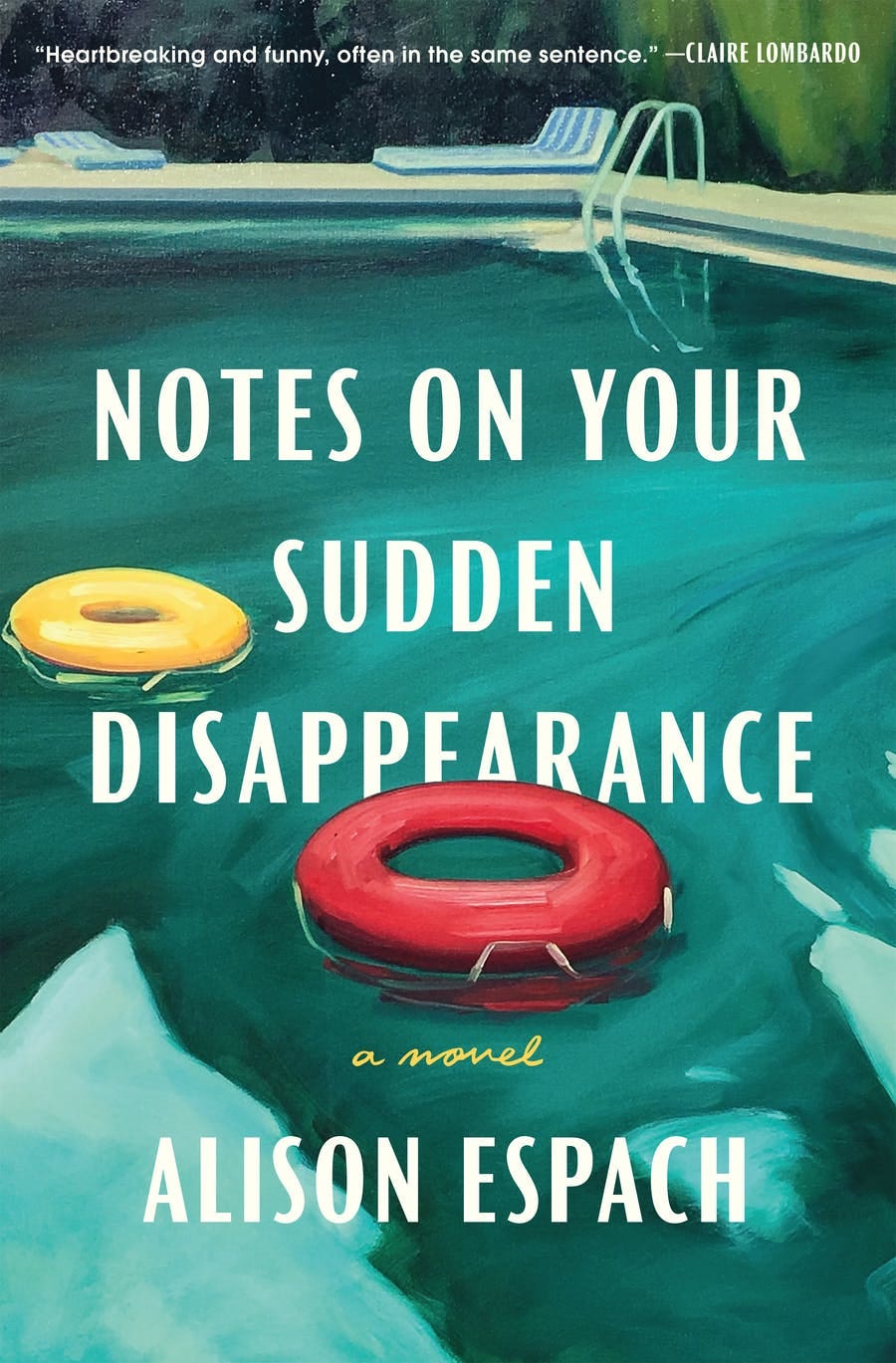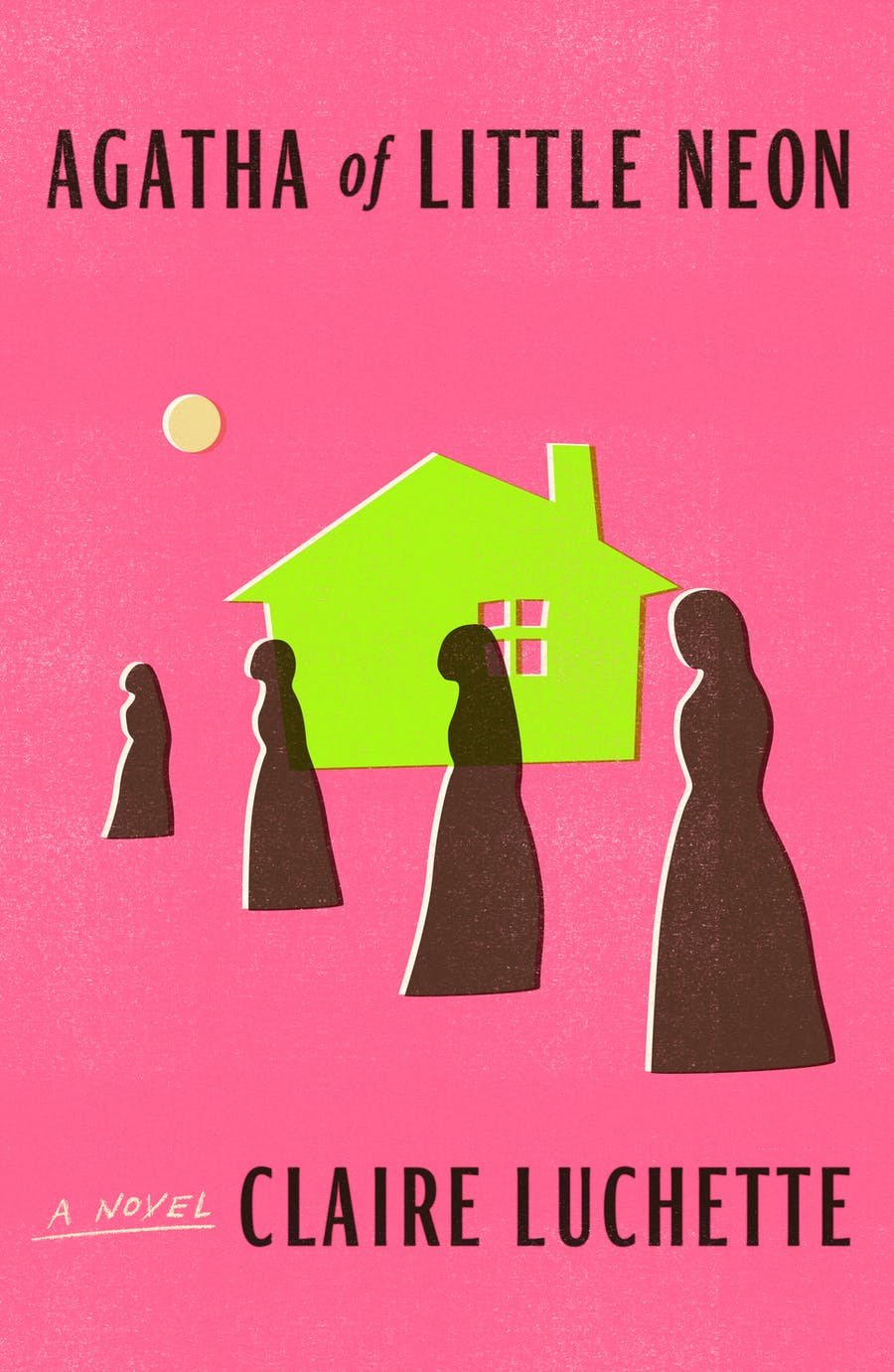Welcome to the June 2022 Reading Round-Up. Each month I write about the books I've read and rank them from worst to best.
13. Skye Falling - Mia McKenzie
Fiction, 320 pages
At 26, Skye donates an egg to a childhood friend looking to have a baby. Pocketing the $5,000 that was offered to her, Skye never looks back, falling out of touch with the friend and starting a successful travel agency that allows her to travel the world. Now, 12 years later, Skye is back in Philly where she grew up to visit a friend. While attending an art show, a 12-year-old girl named Vicky approaches Skye and informs her that she's her egg. Not used to commitment or supportive family relationships, Skye's first instinct is to run, but after considering the situation and confronting her fear of dying alone, Skye decides to stick around in Philly for a few more weeks to get to know Vicky, who's mother tragically died of cancer a few years prior. The more time she stays the more committed she becomes to the relationship and the cast of characters raising Vicky. I thought the book went on a bit too long and some of the finer points fell a bit flat, but overall, McKenzie writes in a distinctly humorous style that makes the book enjoyable and easy to get through.
Rating: 7/10
12. The No-Show - Beth O’Leary
Fiction/Romance, 329 pages
The No-Show begins on Valentines Day, as three women are stood-up by the same guy, Joseph Carter. Siobhan is a life coach in Dublin who occasionally meets up with Joseph in London. Miranda is a tree surgeon who is drawn to Joseph’s stability and wit. Jane is a volunteer at a Winchester charity shop, having fled London for mysterious reasons. None of them know that the other women exist, and as a result, the central questions of the book are: how did this come to be and will they find out? The twist at the end of the story, which is the explanation for what Joseph Carter was doing on Valentines Day and why (or if) he is dating all three women, felt unconventional, if not a bit of a cheap trick by Beth O’Leary. I won’t spoil it, because I do recommend reading the book if you are interested in something lighter yet substantive, but I will say that the twist does not come from the plot, but from the structure Beth O’Leary uses to organize the chapters. While it was certainly creative - I was impressed with the linking of characters using her trick - I do wish the mystery of Joseph Carter was unravelled within the plot.
Rating: 7.5/10
11. Cairo Circles - Doma Mahmoud
Fiction, 376 pages
Shareef is an NYU student from Cairo who spends his days going to class and his nights partying. One morning he wakes up to the news that there has been a shooting on the subway and the perpetrator, he discovers, is his estranged and radicalized cousin, Amir. It is 2006 or 2007 and post-9/11 anti-Muslim sentiment is high. How did Amir get to this point? How was his experience growing up in Cairo so different from Shareef and his friends that his life could take such a dramatic and horrific turn? Cairo Cirlces is a sweeping saga that attempts to answer these questions, full of different characters from different walks of life who all intersect in one way or another in Cairo. Almost inevitably, I found some characters more interesting than others, and felt that some chapters or long observations could have been cut for the sake of keeping the book moving. Additionally, for a book that concerns itself so thoroughly with the social and economic disparities in Cairo society, it felt like a gross oversight to barely mention the 2012 and 2013 protests in Tahir Square and across the country. Instead, these protests take place during the one temporal period not covered by the book, and are thus only mentioned as something vague that happened in the past.
Rating: 7.5/10
10. The Return of Faraz Ali - Aamina Ahmad
Fiction, 332 pages
The Return of Faraz Ali begins in 1968 with the murder of a young girl named Sonia. Sonia lives in the Mohalla, the red-light district of Lahore, Pakistan. She has been groomed her whole life for the moment when a rich man will pay for her virginity, after which she will live and work as a dancer and prostitute. The death of Sonia would normally not raise too many eyebrows, however, amidst riots and political unrest as well as questions about the people involved, a midlevel police officer, Faraz Ali, is dispatched to cover up the crime. Faraz is sent by his father, Wajid, Lahore's chief inspector, for mysterious reasons unbeknownst to Faraz. Faraz, born to a prostitute in the Mohalla, is the bastard child of Wajid, and was taken by his father from a young age to live with distant relatives in order to give him a better life. This action has made Faraz permanently inquisitive - inquisitive about his father's family, about the family he left behind, and about the crimes that he is meant to cover up in an endlessly corrupt system. The novel spans approximately 6 years and alternates perspectives between Faraz, his sister, and Wajid's life in the army in the 1940s. Although Ahmad is clearly a talented writer with an impressive debut, as was my critique with Cairo Circles, I wish that Ahmad had limited the perspectives that she chose to highlight, because by choosing to write so many, I missed important development from each. By the time the book came to a close, the story of Sonia's murder felt secondary, and if you blinked you would have missed the conclusion.
Rating: 7.5/10
9. School Days - Jonathan Galassi
Fiction, 211 pages
Sam Brandt is an English teacher at the storied Leverett boarding school in Connecticut. His teaching style, one that involves personalized and intimate instruction, is inspired by Theo Gibson, his own English teacher from his years at Leverett in the 1960s. In the fall of 2007, the head of school asks Sam to investigate an allegation of inappropriate sexual behavior that one of Sam's former classmates is making against the now late-Gibson. The allegation sparks Sam's memory of his time as a student at Leverett and the romantic trysts that were common amongst the campus population.
Jonathan Galassi is the chairman of the publisher Farrar, Straus, and Giroux, and I therefore had high expectations for his book, which ultimately were not met. There are very few female characters in this book and none of the few that did exist had any meaningful roles. By contrast, there was an incredibly large cast of privileged male characters, which became difficult to keep track of not only because of the quantity - Galassi insisted on referring to a boy by his first name in one sentence and then his last in the next - but also because of their seemingly indistinguishable characteristics. Furthermore, the central premise of the book revolves around the allegation of inappropriate behavior between a teacher and student, but the resolution appeared to insinuate that the behavior was okay because the student craved acceptance and belonging, particularly in exploring his sexuality, as was apparently common in this hermetically sealed world of an all-boys elite school.
Rating: 8/10
8. Left on Tenth: A Second Chance at Life - Delia Ephron
Memoir, 304 pages
Delia Ephron’s memoir begins with the death of her husband from pancreatic cancer. It is searing and traumatic - certainly a grim way to start a book. Delia’s loss, however, frames the next five or so years in her life, which are the subject of her memoir. After writing an op-ed in the New York Times about the terrible customer service at Verizon she encounters while trying to discontinue her late-husband’s landline, Delia receives an email from a man named Peter, who had been introduced to Delia by her late sister Nora when she was 18. Their correspondence turns into late in life marriage, the ceremony for which takes place in a hospital wing on the eve of the start of Delia’s treatment for leukemia, the same cancer that killed her sister. The second half of Delia’s memoir focuses on her medical journey, from an experimental therapy she is given to a harrowing bone marrow transplant. Along the way, Delia introduces readers to her many wonderful doctors and friends who support her in ways big and small. Delia preserves these moments by reprinting the emails sent by friends while she was in the hospital. I think the New York Times review would agree with me that not all of these emails needed to be printed in full and that it was difficult to keep track of the numerous people in her life - but boy does Delia Ephron have a literate group of friends. Left on Tenth was a challenging story of hardship and resilience, of finding love after death, and in some ways, an ode to New York City.
Rating: 8/10
Thank you to Little Brown for the advance reader copy of this book!
7. Anything is Possible - Elizabeth Strout
Fiction, 254 pages
Anything is Possible is billed as a type of sequel to the beautifully written My Name is Lucy Barton, and a precursor to Strout's most recent novel, Oh, William! This label might be a bit of a misnomer. While Lucy Barton and her siblings are featured near the end of the book, Anything is Possible is more a collection of short stories, each featuring different members of a small town who are tangentially connected to one another. As a result, there is no overarching plot that pulls the chapters together, but rather the book is united by the quiet introspective details of people who have had difficult lives and are able to constructively reflect upon them. And yet, despite the grim subject matter - heartache, trauma, an unexpected hostage situation by a cracking actor, PTSD, sexual assault - Strout is able to write with lovely clarity to make the mundane and the horrible appear equally beautiful on the page. Where the book lost points for me was my disinterest in a few of the stories that I felt went along for a bit too long before Strout inserted the plot twist or reveal. The book as a whole, however, is worth reading if not solely because of Strout's talent as a writer, and I fully plan on picking up Oh, William! in order to re-immerse myself in Lucy Barton’s and the surrounding characters' worlds.
Rating: 8/10
6. Tracy Flick Can't Win - Tom Perrotta
Fiction, 259 pages
Tracy Flick Can't Win is a follow-up to Tom Perrotta's 1998 novel, Election. Election followed go-getter social outcast Tracy as she ran for student body president. Now, twenty years later, instead of being a high-powered lawyer, doctor, or senator as she had once dreamed, Tracy is toiling away as an assistant principal in a public New Jersey high school. Her big career plans have been sidetracked by her mother's battle with MS and an unexpected pregnancy, but Tracy still approaches every day with zeal. When Jack Weede, the school's aging principal, announces plans for retirement, Tracy assumes she is a shoo-in to replace him. Eager to please the school board in order to ingratiate herself for a promotion, Tracy agrees to participate in the School Board President's pet project to create a "hall of fame" for the school's (un)successful alumni. But no matter how hard Tracy tries she is never quite rewarded, and obstacles appear for her at every turn. Tracy's story, and the story of the school, are told in the alternating perspectives of Tracy, Jack, two students, a hall of fame alum, and a few other characters. The chapters are very short, providing quick glimpses into their lives and perspectives. I wish that these chapters had been longer because I wanted to see some of the ideas more fully fleshed out, although the brevity did keep the book moving. I think that if this book was written by a woman it would be (unfairly) labeled as "women's fiction" and not given a lot of critical literary attention. Because it was written by Tom Perrotta, a well-respected (male) author known for complicated character studies, the book has received a lot of positive critical coverage, particularly in the New York Times. I enjoyed Tracy Flick Can't Win despite never having read Election, and think this book is as enjoyable as it is complicated and thought-provoking.
Rating: 8.5/10
Thank you to Scribner for the advance reader copy of this book!
5. Last Resort - Andrew Lipstein
Fiction, 291 pages
Caleb is an aspiring novelist unable to write anything worth publishing. After reuniting with Avi, an acquaintance from college, and listening to him tell an unnerving story from his vacation to Greece (the inspiration for the slightly misleading cover), Caleb suddenly has a story worth writing. Two years later, a prominent literary agent wants to work with Caleb, shepherding the book through a purchasing process that ends in a sale worth hundreds of thousands of dollars. The only problem is that Avi, the original purveyor of the story, wants credit for Caleb's work, resulting in a legal agreement that Caleb will receive all of the royalties from the novel but Avi's name will go on the jacket. Caleb thinks he will be okay with this deal, especially given his financial gains, but when the book comes out and is heralded as a literary success, Caleb craves the recognition he believes is being falsely given to Avi, setting off a chain of events to reclaim ownership of an idea that might have already been stolen.
When this book came out in January it was compared to Jean Hanff Korelitz's The Plot given the basic premise overlap of one writer stealing an idea from another. Beyond this similarity, I think comparing Last Resort to The Plot does a disservice to both books. Last Resort is purely literary fiction while The Plot is literary fiction with an undercurrent of thriller and mystery. Although both books center around a deeply insecure male protagonist who wants to make a name for himself in the literary world, Last Resort provides a much more detailed character study of Caleb, complete with paragraph-free pages of introspective thoughts. And whereas the hook of The Plot is the narrator's attempts to get away with his intellectual con, Caleb's desire for acknowledgement leads him to admit very early on in Last Resort where the inspiration for his novel comes from, which if anything, drives Caleb's behavior and the story forward. I very much enjoyed this book and the questions it presents surrounding intellectual property and the need people have for public recognition.
Rating: 9/10
4. Notes On Your Sudden Disappearance - Alison Espach
Fiction, 352 pages
Sally and Kathy are sisters and best friends. They share the same room and every night Kathy, who is three years older than Sally, fills her in on all the world has to offer, including school politics, crushes - mostly Billy Barnes - and growing up. In eighth grade, Sally gets a ride to school with Kathy and her now-boyfriend Billy, and, in an attempt to avoid a deer on the road, Billy swerves and hits a tree, instantly killing Kathy. All at once, the lives of Sally, her parents, and Billy are shattered and they are each left to grieve in their own way. The book is written from Sally's perspective as a type of letter to Kathy, who she updates on how life has been in the fifteen years following the crash. Sally never truly gets over the death of Kathy, seeing reminders of her in everything around her, including her mother's loss of grip on reality and Billy's continuation of a semi-normal life. The beautifully written heaviness of each character's grief and complicated relationships with one another are not reflected in the book’s cover that was most likely chosen by a publisher who wanted to market the book as a summer read.
Rating: 9/10
Thank you to Henry Holt and Co. for the advance reader copy of this book!
3. Sandy Hook: An American Tragedy and the Battle for Truth - Elizabeth Williamson
Non-Fiction, 446 pages
There are a handful of moments in life in which you can remember exactly where you were when an event took place. For me, the shooting at Sandy Hook Elementary School is one of them. I was sitting in my ninth grade math class when a classmate interrupted the teacher to tell everyone that he had just gotten a notification that there had been a shooting at an elementary school and many little children were dead. While my reaction and the reaction of those around me was grief and the persistent questions of "how can this happen" and "how can we prevent tragedies like this in the future," the first reaction for other more conspiracy-prone people across the country was denial. This denial led to outrageous claims that Sandy Hook was a false flag operation set up by the government as a ploy to take away people's guns. These people, who found each other with a newfound ease on platforms such as Facebook and Twitter, believe that the children and teachers who were killed on December 14, 2012 were "crisis actors," and that the grieving parents are in on the plot. Opportunistic fear mongers like Alex Jones at Infowars capitalized on these increasingly popular conspiracy theories, broadcasting them to hundreds of thousands of people every day, and profiting off of their ignorance. Adding insult to the tragedy, these conspiracy theorists exist beyond the confines of the internet, and continue to harass grieving parents not just with their denial of the existence of their children, but through doxing and threats to personal safety. In response, a handful of these parents sued Alex Jones and other vocal conspiracists, an ongoing battle covered by Williamson in this book.
To be clear, this book does not provide a comprehensive overview of the events that transpired at Sandy Hook and the decade after, i.e. it does not discuss subsequent efforts to pass new gun control legislation, it barely mentions the NRA response and lobbying techniques, nor does it talk about a lawsuit brought by parents against Remington. Instead, Williamson narrows her focus specifically on the conspiracy theories that sprung up surrounding the shooting, the powerful people who fueled these flames, and the reactions and lawsuits instigated by parents in response. The narrowing of the focus helps centralize Williamson's thesis: with the help of unregulated social media platforms, the reaction to the Sandy Hook shooting brought conspiracy theories and their disruptive and sometimes violent consequences into the mainstream. The subject matter of this book makes it difficult to read, but it is important. In the wake of Uvalde and the countless other shootings preceding it, it is important to understand how hate begets hate in order to best approach preventing future tragedies.
Rating: 9/10
2. Agatha of Little Neon - Claire Luchette
Fiction, 288 pages
Agatha and her three sisters have spent the last 9 years running a parish daycare in Buffalo. In their spare time they assist with mass, run bible study sessions, and provide good deeds around the community. When word comes, however, that the Buffalo diocese is bankrupt, Agatha and her fellow sisters are forced to relocate to Woonsocket, a small Rhode Island town, to run a halfway house called Little Neon, named after the color of the cheap paint on the exterior. Upon arrival, Agatha, deemed the smartest of the four, is asked to teach sophomore geometry at the local all-girls school. For nine years, Agatha has done everything with her sisters and has reveled in the anonymity provided by the church. The opportunity to become a teacher slowly expands her world, shining light on subtle problems that were always present but that she chose to ignore such as the identical form letter sent by the pope to each of the sisters after they wrote individual and personal welcomes, the constant desire to pray for one of Agatha's students who she discovers kissing another girl, the halfway house inhabitants' deep struggles that are not healed by simple prayer, and the constant murmuring about an issue of sexual abuse and the large monetary payoffs being paid by the Church.
I thought this book was fantastically written, full of observations that are as quiet as they are powerful. I appreciated that Agatha's reckoning with the Catholic Church and her role as a sister was not instigated by one calamitous event nor were her complaints forceful and immediately clear. Rather, it was the accumulation of a decade of subtle slights that precipitated a slow awakening for Agatha to her surroundings. This is a beautiful book on faith and religion written with detailed precision.
Rating: 9.5/10
1. Search - Michelle Huneven
Fiction, 390 pages
Search, a novel written in the form of a memoir, is the story of one California Universalist-Unitarian church's search for their next head minister. Writing the memoir is Dana, a former seminary student turned LA Times food critic and best-selling memoirist, who decides to apply for and join the search committee both as a way to reconnect with her church as well as gain fodder for a new memoir. In addition to Dana, the search committee is composed of seven other people who act as a representative sample of the congregation, from the 85-year-old former church secretary to the young mother in her twenties with strong opinions about how the church should look in the future. The book follows the committee and their organized deliberations over the course of the nine month process to find the next minister, giving insight into a highly choreographed and highly contentious search. This is a book that contrasts fully-formed, entertaining characters who fill fascinating scenes of tension-filled deliberation with quiet moments of pensive reflection on the roles of community, spirituality, and leadership in a highly progressive enclave. This book is not action-packed but it is not devoid of movement either. I was drawn to Huneven's prose from the very first page and loved its unique structure and unconventional subject matter that made it difficult for me to put down.
Rating: 9.5/10
If you like what I’ve written or want to see more reviews, recommendations, and round-ups about a wide range of novels, histories, and more, consider subscribing now by entering your email.
Want to see last month’s round up? You can find that here.






